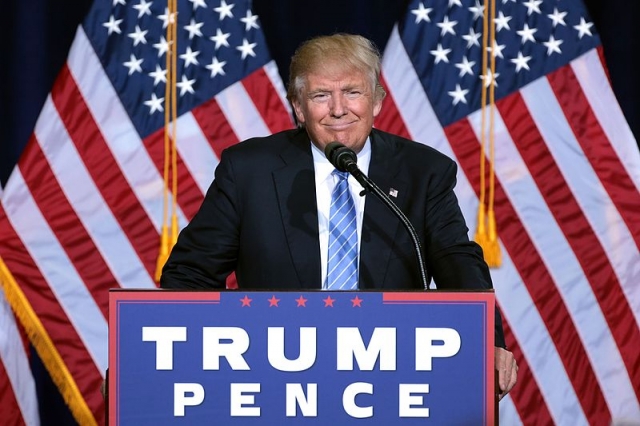Populism, Progressivism and Trumpism
Historian article

Campaigns for the American presidency
Populism, Progressivism and Trumpism: third party, inter-party and intraparty candidates in campaigns for the American presidency
Michael Dunne explores the complexities of American presidential political campaigning over the last 200 years.
Vox populi, vox dei. The voice of the people is the voice of God. Since these words were first recorded many centuries ago, they have been used both to celebrate the popular will and to warn against it: the contrary fate of many aphorisms. It is a racing certainty that some commentators on the result of the current election to be the 45th president of the United States will succumb to the temptation to quote this adage, particularly if Donald J. Trump defeats Hillary Rodham Clinton in the popular vote. (Technically success in the nationwide popular vote does not guarantee entry into the White House; but only in very rare cases is the discrepancy an issue, the most recent being the ‘Dubya’ Bush-Al Gore election of 2000: the first time since 1888.) A Trump victory, ‘trumping’ indeed almost all the professional pundits’ predictions when he began his latest campaign for the presidency in the summer of 2015, would be ascribed to the pent-up yet neglected anger and resentment of the majority – President Richard Nixon’s once ‘silent majority’ – of the American people.
‘Populism’ would have triumphed. For those commentators with a penchant for Latin and hostile to Trump, vox populi would be heard as vox diaboli: the voice of the Devil. American political jargon is rich and known throughout the world. The late eighteenth century gave us ‘gerrymandering’ and ‘caucuses’ from the chicanery and intrigues of New England politics; the ‘spoils system’ came with the election of President Andrew Jackson in 1828; the Civil War-era showed Confederate sympathising ‘copperheads’ and Northern ‘carpet-baggers’. Then the ‘mugwumps’ reappeared, the 1830s sobriquet borrowed from the Algonquin language to describe self-satisfied political ‘big shots’, re-defined in 1884 to mock fastidious Republicans either reluctantly voting for Democratic candidates or sitting on the electoral fence – with their mug on one side and their rump on the other! Shortly thereafter ‘populism’ entered the American political lexicon in the 1890s. The term has never died out; it has moved abroad while remaining at home; and it has yet to shake off its early, pejorative connotations either at home or abroad...
This resource is FREE for Student HA Members.
Non HA Members can get instant access for £2.49

